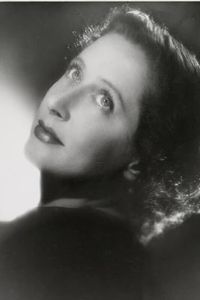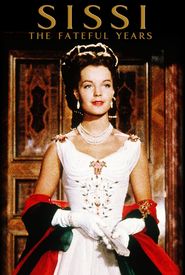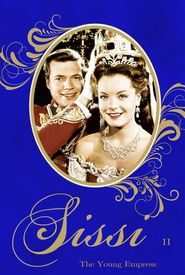Vilma Degischer, a celebrated and illustrious Austrian thespian, burst onto the scene on November 17th, 1911, in the esteemed city of Vienna, Austria.
Initially, she harboured a deep-seated passion for the art of dance, and thus, she embarked upon a rigorous study of ballet under the meticulous guidance of the renowned instructors, Grete Gross, Gertrude Bodenwieser, and the enigmatic Ellinor Tordis.
As she delved deeper into the world of dance, she began to uncover a profound and innate talent for acting, which ultimately led her to abandon her aspirations as a dancer and instead, dedicate herself to the craft of acting.
The talented actress, Degischer, embarked on a rigorous journey to refine her acting abilities by attending the prestigious Wiener Reinhardt Seminar. This esteemed institution provided her with a comprehensive education in the art of acting, laying the foundation for a successful career in the theatre.
Upon completing her studies, Degischer ventured forth to showcase her skills on stage, performing in a diverse array of productions across Austria and Germany. Her travels took her to the vibrant cities of Berlin, Vienna, and Salzburg, where she had the opportunity to hone her craft alongside some of the most talented thespians of the time.
One of the most notable highlights of her early career was her debut performance in Berlin during the 1930s. In this production, she brought to life the captivating character of Hermia in Shakespeare's enchanting masterpiece, A Midsummer Night's Dream. The direction of this production was masterfully handled by the illustrious Max Reinhardt, a renowned figure in the world of theatre.
The pivotal moment in Vilma's professional trajectory occurred in 1939, marking the beginning of her tenure at the esteemed Viennese theatre, "Theater in der Josefstadt", a venue where she would go on to spend a significant amount of time and leave a lasting impression. Even to this day, her presence is still warmly remembered by many. As a "salondame", Vilma secured a multitude of leading roles in various productions, including the highly acclaimed portrayal of Helen in the play "Der Schwierige", the strong and commanding Generalin in "Der Walzer der Toreros", the unforgettable and regal Queen in "Die Jüdin von Toledo", the captivating Marie in "Das Konzert", and the maternal yet fiery Mother Carmen in "Maria Pineda".
In the 1940s, the talented actress, Maria Degischer, embarked on an ambitious journey to expand her repertoire, venturing into the realms of musicals, films, and television series, thereby showcasing her remarkable versatility and range.
Many people still fondly recall her iconic portrayal of the cold-hearted Archduchess Sophie in Ernst Marischka's three-part film series "Sissi", which premiered between 1955 and 1957, alongside the esteemed Romy Schneider and Karlheinz Böhm, further solidifying her status as a respected thespian.
In addition to her memorable performance in the "Sissi" trilogy, Degischer appeared in a variety of films, including the critically acclaimed "Der veruntreute Himmel" in 1958, the thought-provoking "The Cardinal" in 1963, and the historically significant "Uncle Tom's Cabin" in 1965, among numerous other notable roles, thereby cementing her position as a prolific and accomplished actress of her time.
In the latter stages of her life, Degischer could occasionally be spotted in a relatively insignificant or unassuming part within the framework of the mini-series "The Strauss Dynasty", which was meticulously crafted by the renowned director Marvin J. Chomsky, and starred the esteemed actors Anthony Higgins and Stephen McGann.
Vilma Degischer, a renowned Austrian actress, departed this life on May 3rd, 1992, at the ripe age of 80, leaving behind a legacy of remarkable performances and accolades. Married to the esteemed actor Hermann Thimig, she was blessed with two loving daughters who undoubtedly inherited their mother's passion for the arts.
Throughout her illustrious career, which spanned many decades, Degischer received numerous honors and awards in recognition of her outstanding contributions to the world of theatre. Among her most notable accolades were the "Ehrenkreuz für Wissenschaft und Kunst erster Klasse," the prestigious "Kainz Medaille," and the esteemed title of "Kammerschauspielerin," a testament to her unwavering dedication and commitment to her craft.
Those who had the privilege of knowing her up close and personal often recall her unwavering admiration for the finer things in life, specifically the precision and sophistication of the acting craft, as well as her commitment to upholding good manners and a deep appreciation for the world's rich cultural heritage.
She will forever be etched in the memories of those who shared her core values, which were rooted in a profound respect for the art of acting, a love for the beauty and refinement of elegance, and a strong sense of propriety and decorum.
A true thespian from a nation renowned for its storied history, esteemed traditions, and cultural achievements, she left an indelible mark on the world of entertainment, and her legacy continues to inspire and influence new generations of performers and admirers alike.



























